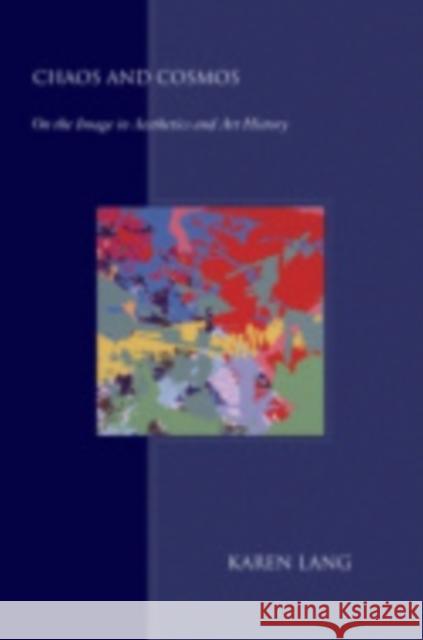Chaos and Cosmos » książka
Chaos and Cosmos
ISBN-13: 9780801441660 / Angielski / Twarda / 2006 / 312 str.
Chaos and Cosmos
ISBN-13: 9780801441660 / Angielski / Twarda / 2006 / 312 str.
(netto: 559,74 VAT: 5%)
Najniższa cena z 30 dni: 535,42
ok. 30 dni roboczych.
Darmowa dostawa!
Writing in 1940, the prominent German art historian Erwin Panofsky asked, "How, then, is it possible to build up art history as a respectable scholarly discipline, if its objects come into being by an irrational and subjective process?" In Chaos and Cosmos, Karen Lang addresses the power of art to resist the pressures of the transcendental vantage point-history. Uncovering the intellectual and cultural richness of the early years of academic art history in Germany the period from the 1880s to 1940 she explores various attempts within art history to transform aesthetic phenomena chaos into the cosmos of a systematic, unified field of inquiry.Lang starts by examining Panofsky's approach to aesthetic phenomena in his early theoretical essays alongside Ernst Cassirer's contemporaneous publications on the substance and function of scientific concepts (and on Einstein's theory of relativity). She then turns to the subject of aesthetic judgment through a rereading of Kantian subjectivity and Kant's uneasy legacy in art history. From here, Lang considers the different organizing theories of symbolic form proposed by Aby Warburg and Cassirer, as well as Goethe's inspiration for both; Alois Riegl's notion of age value and Walter Benjamin's conceptions of the aura; concluding with an extended examination of objectivity and the figure of the art connoisseur.Extensively illustrated with works of art from the Enlightenment to the present day, this venturesome book illuminates an intellectual legacy that has profoundly shaped the study of the history of art in ways that have, until now, been largely unacknowledged. Addressing the interplay of chaos and cosmos in terms of history, art history, philosophy, and epistemology, Lang traces shifts in point of view in art history and the way these shifts change aesthetic objects into historical objects, and even objects of knowledge."











